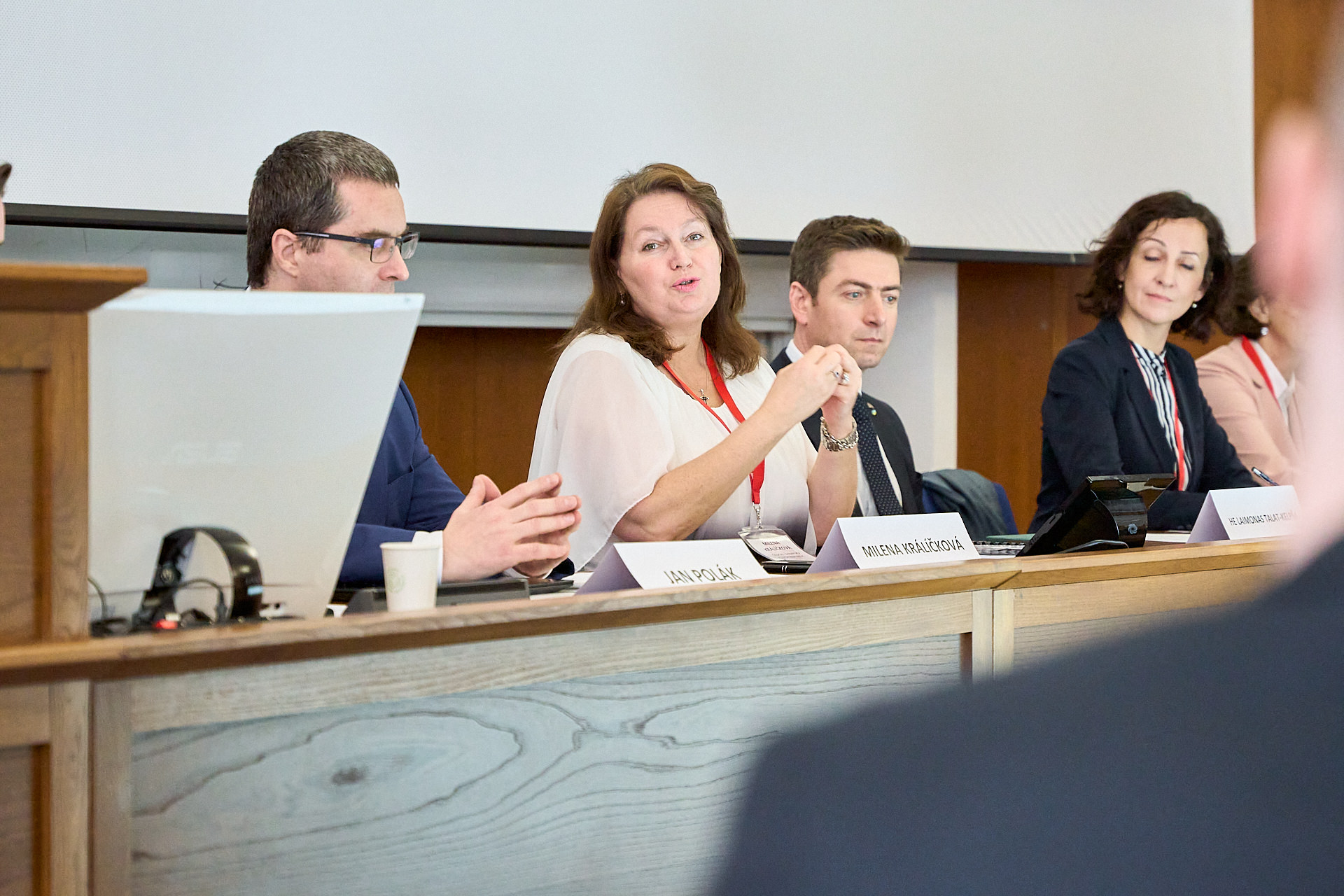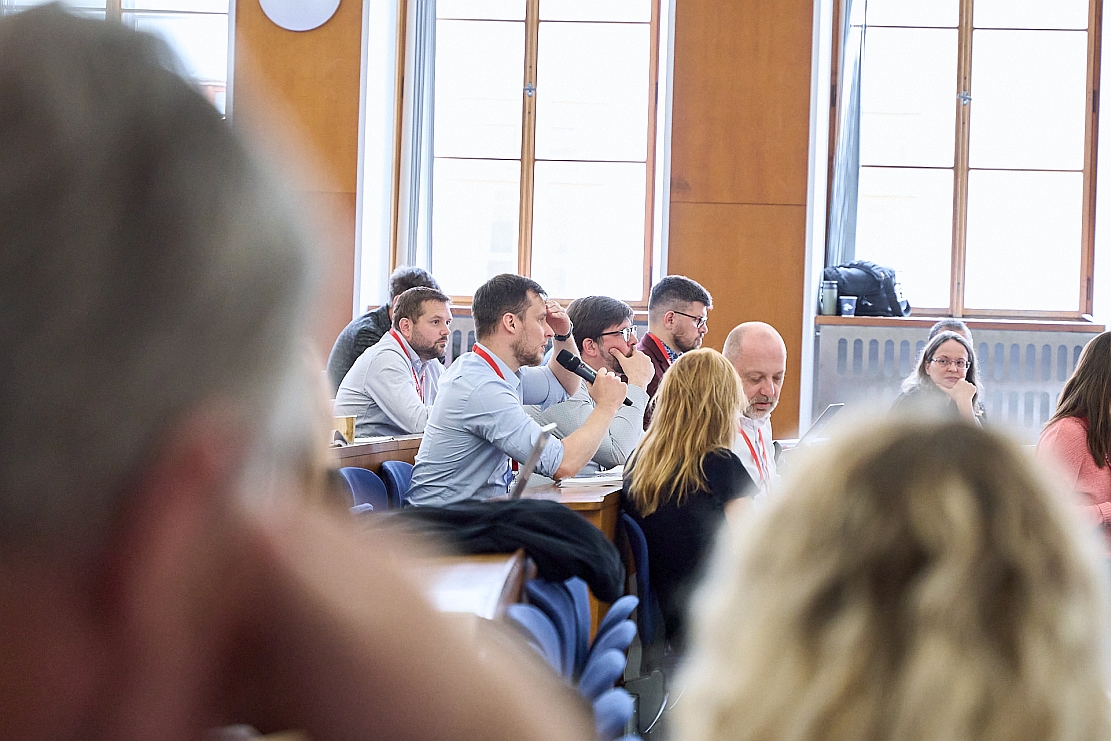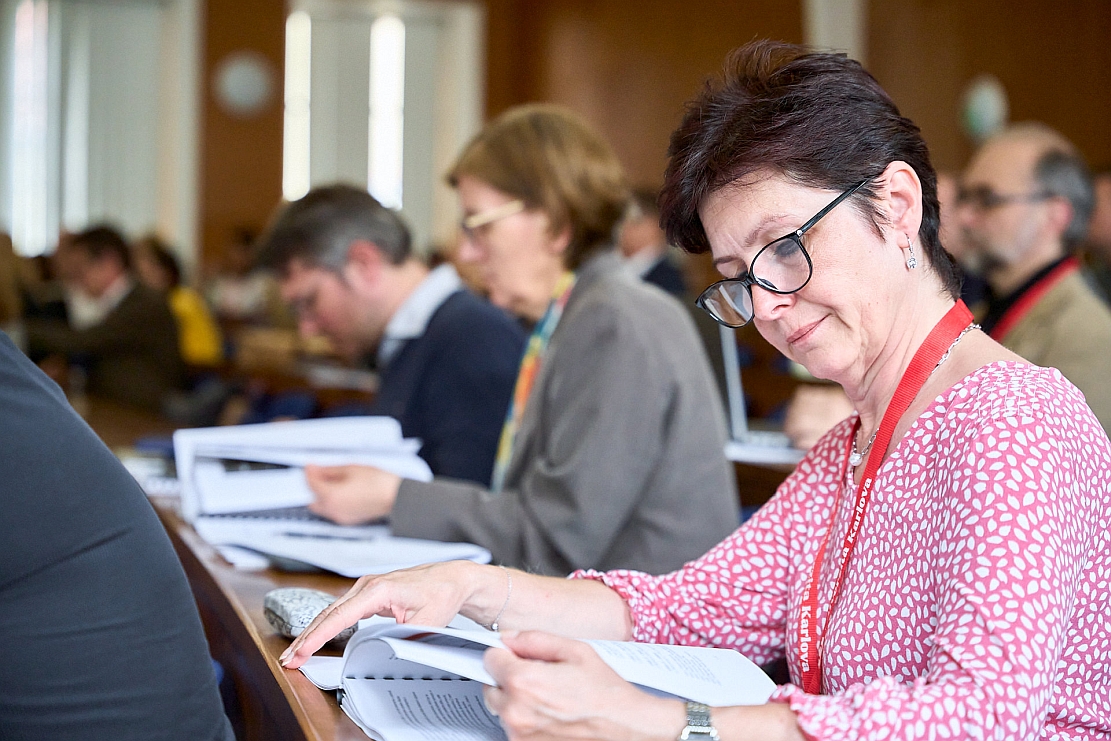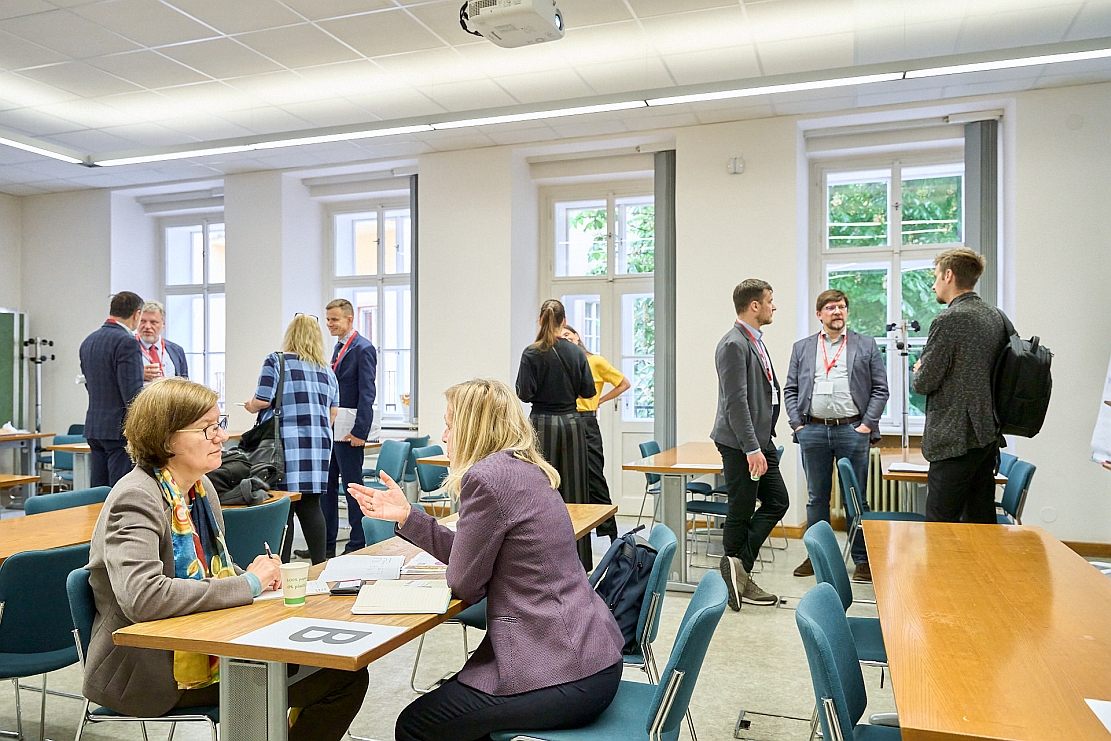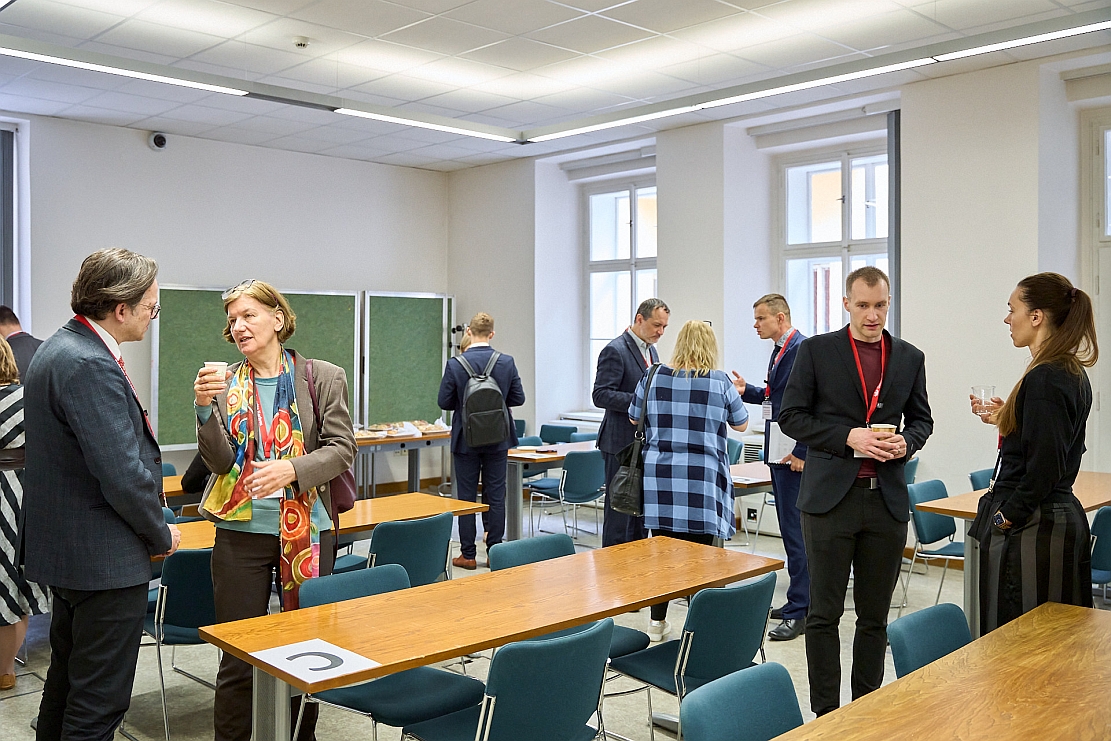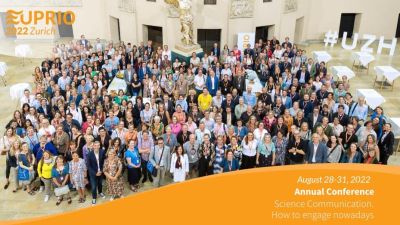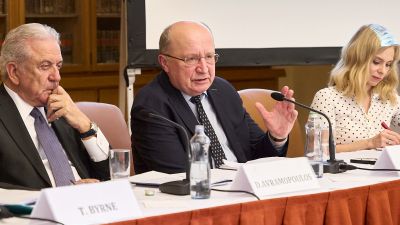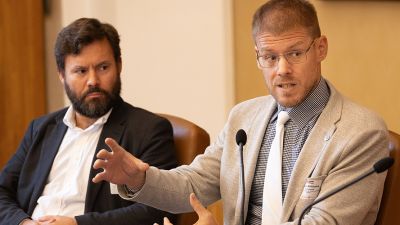On Friday, Charles University hosted a highly successful, much-awaited conference entitled “Building Excellence in International Joint Study Programmes”. Under the auspices of Rector Milena Králíčková, the meeting of Czech and foreign experts focused on international joint study programmes, their implementation, financial support and promotion. The actual event – with carefully planned blocs for networking - provided plenty of opportunities to share know-how and went off without a hitch.
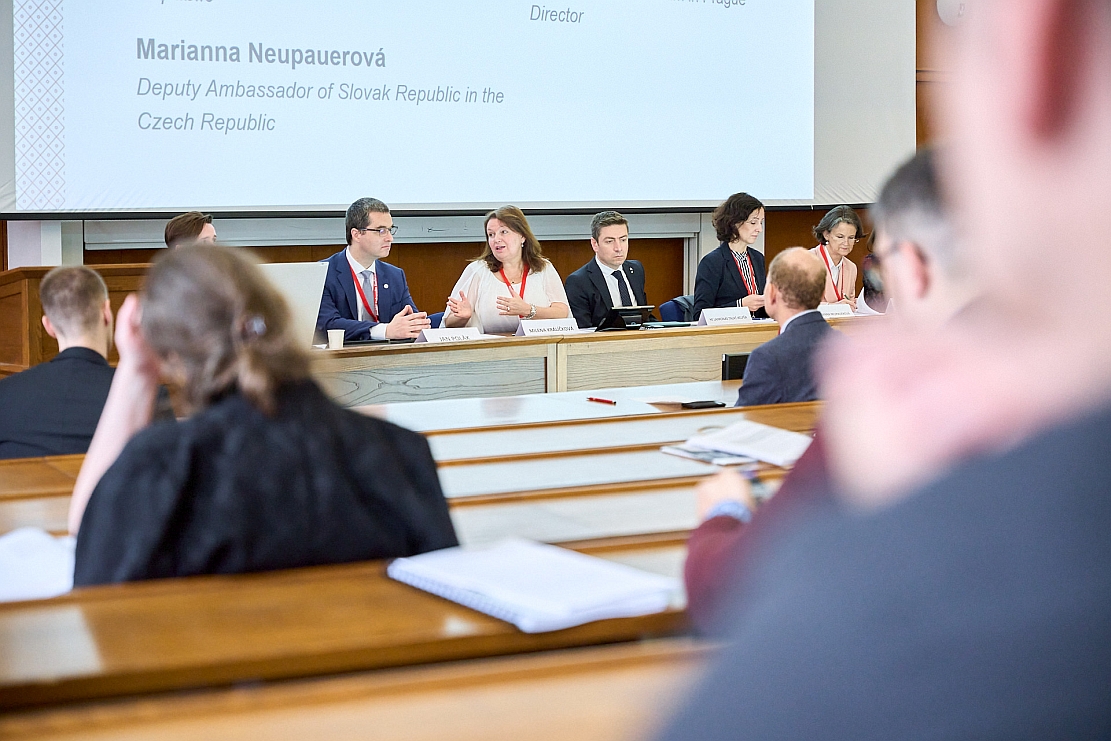
CU Rector Milena Králíčková converses with her colleague Jan Polák, whose team organised Friday's successful conference.
International joint study programmes, which are organised in cooperation between two or more schools from different countries, are becoming increasingly popular. For universities, these study opportunities are one of the ways in which they can fulfil their commitment to internationalisation, strengthen their strategic partnerships with each other and enhance their international reputation. Through joint programmes, universities also promote international mobility, not only of their students, but also of academic staff and school management. Charles University has established 19 such joint study programmes with foreign universities.
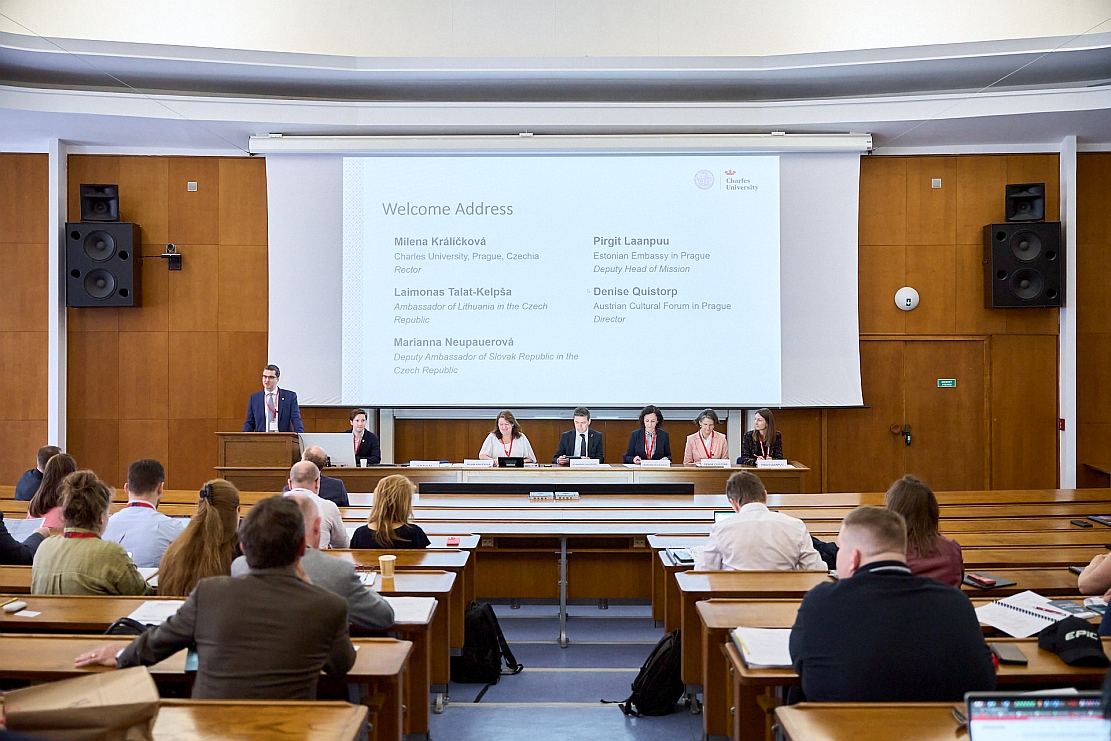
The conference invited esteemed guest speakers from the embassies of Lithuania, Slovakia, Estonia, and the Austrian Cultural Forum.
On Friday, at CU’s Blue auditorium attendees got a chance to see a wide array of presentations on the subject, and to engage in debate and discussion. The programme was kicked off by CU’s Vice-Rector for the Conception and Quality of Education Jan Polák, who introduced key partners in the event: representatives from the embassies of Lithuania, Estonia, and Slovakia and the Austrian Cultural Forum, as well as CU Rector Milena Králíčková. Each spoke about the importance of student mobility as well as the benefits of joint-programme cooperation for all involved (including universities themselves that benefit) as well as an placing an emphasis on excellence: the sharing of best practices and know-how. The aim is to offer still better opportunities for students in their respective fields as well as broader employment opportunities upon graduation, with their particular mix of specialisations and skills.
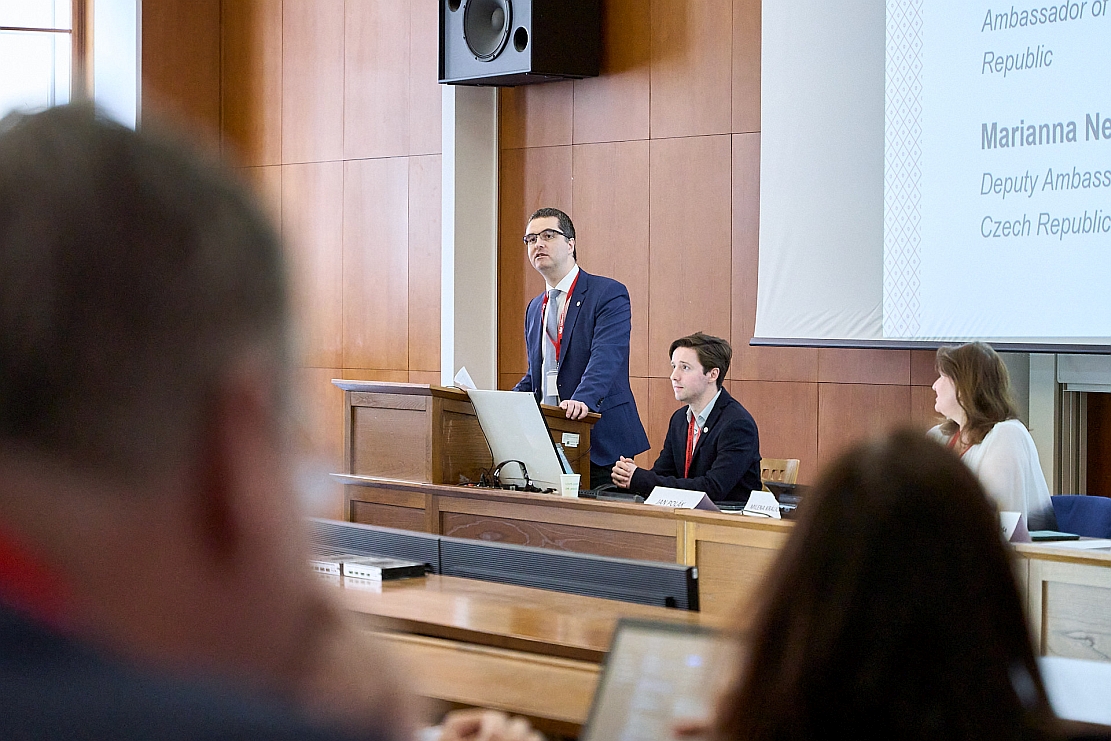
Vice-Rector Jan Polák at the podium where he appeared several times over the course of Friday's conference at Charles University.
Welcoming attendees, Vice-Rector Polák stressed just how much attention the meeting had garnered, how full or robust a programme was an offer, and how many representatives from different schools were taking part. “Before we go on, let me just go over a number of statistics because I think you will be proud of yourselves. We have a community of nine countries… and representatives from 48 higher learning institutions taking part, so I think that will be very helpful.”
With that, the conference got underway with honorary addresses, including Charles University’s rector, Milena Králíčková, who emphasised that the overall point of the conference was not only to promote joint-cooperation in general but also to build on existing programmes, striving for even greater excellence. Here is what the rector had to say:
“We all are dedicated to making sure Charles University is fully internationalised and open to meaningful international cooperation. There is Erasmus, more meaningful mobility, and we are really intent on being a leader among… the most effective universities in mobility whether we are talking about incoming or outgoing students. Here I would really like to thank our vice-rector Jan Polák, that he is really focused on the development of joint-study programmes, some of which you will hear about. Thank you to him and his colleagues, who really prepared a great programme for today.”
Study programmes in which several universities from different countries are involved - so-called joint degrees, double degrees or multiple degrees - differ in several respects from traditional "domestic" programmes. By their very nature, students do not stay at their "home" university alone, but visit at least one partner university during their studies. This element of travel or relocation is part of what is fundamental to the overall experience.
The actual structure of these programmes varies. In some programmes, the university where the student starts and finishes his/her studies is predetermined, while in other programmes the partner universities can choose the universities where the student will study, depending on the chosen specialisation. The universities conclude agreements with each other on the conditions and organisation of the studies and even on the form of the diploma for this type of study. The diplomas are usually joint, or the universities award their standard diplomas, stating that they are awarded as part of a joint programme of study.
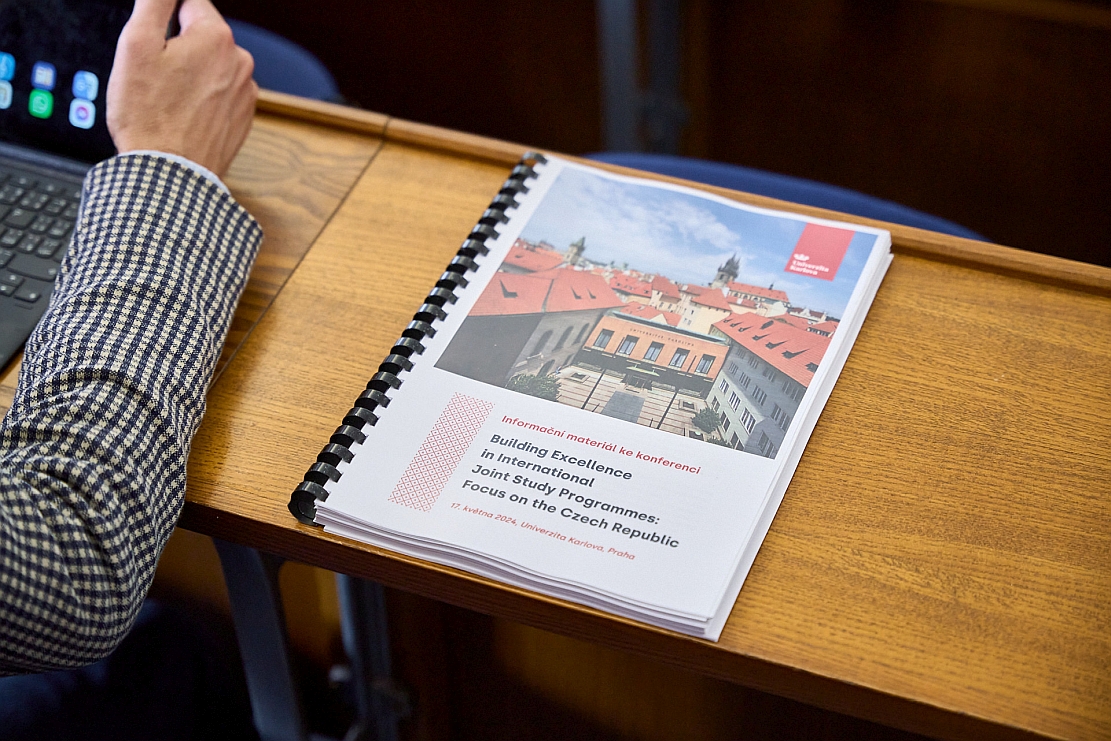
Participants in Friday's conference received this handy manual covering - in full - topics and presentations.
The last bloc of the conference on Friday wrapped up around 6 pm. The final speaker to present was Matyáš Moravec who gave a personal account of what studying abroad had meant for him. While he himself is not a CU alumnus, the philosopher, based at the University of St. Andrews, recommended the experience of studying abroad to all who wanted to broaden their horizons, and joint study programmes as an exceptional way to thread the needle with benefits post-graduation. What was needed, he suggested, was raising greater awareness already at the high school level, so potential university enrolees would know more about their options and where the road might take them next.
“The reason that I went to study in the United Kingdom was because I knew someone who had done the same. I think at the high school level in the Czech Republic there a lot of brilliant students who don’t know what the options are or that this a possibility. After Brexit, I don’t know if it’s still as viable an option, but back in 2012 it was.
Regarding his own field, he said there were many reasons to enrol in a joint study programme or to pursue a joint degree.
“[Just look at philosophy]: being the most abstract of the disciplines, it is necessarily connected to others. You have the philosophy of science, of gender, and so on. My work is within the history of philosophy, so I work with many historians and [there is this crossover]. And I’m sure it applies to other fields of study as well.”
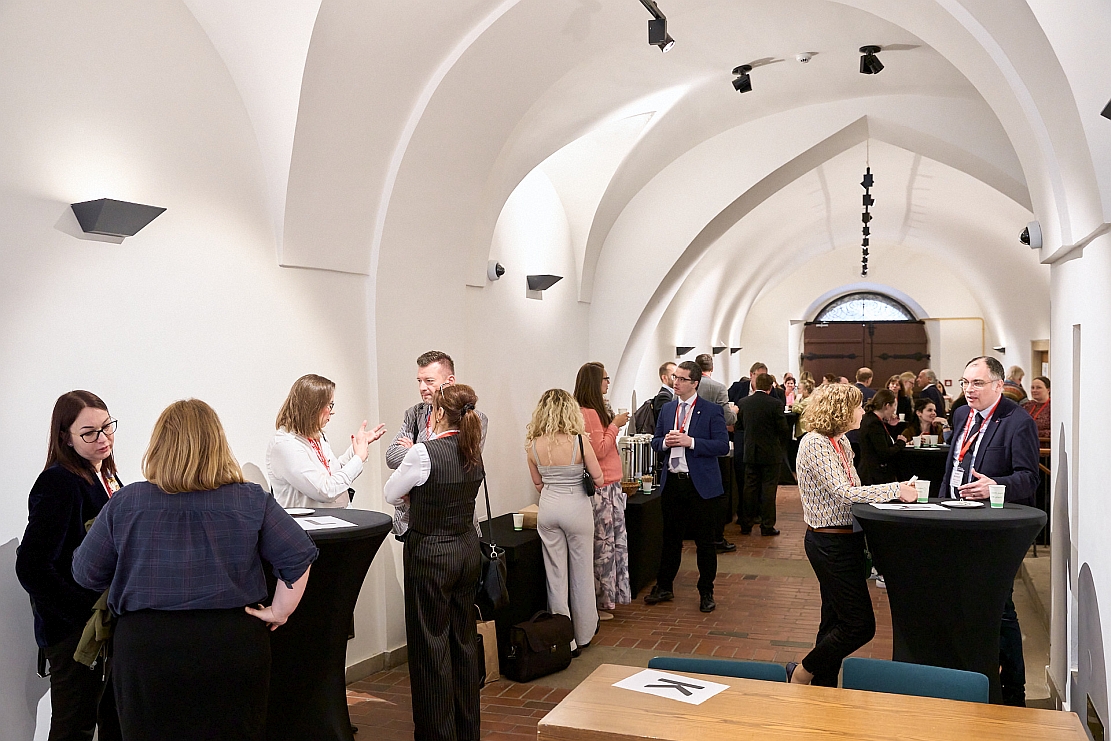
Essential: despite a full programme, organisers did not forget to put together clever blocs for networking and meeting face-to-face.
The conference Building Excellence in International Joint Study Programmes this year provided a forum for higher education professionals to share practical experiences in implementing joint study programmes and an opportunity for experts from public and private universities to learn about funding opportunities and to network with colleagues from home and abroad. The reverberations will likely be felt for some time and new relationships established will lead to newer projects we will surely hear more about next time.


